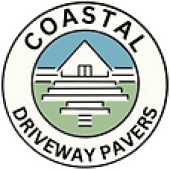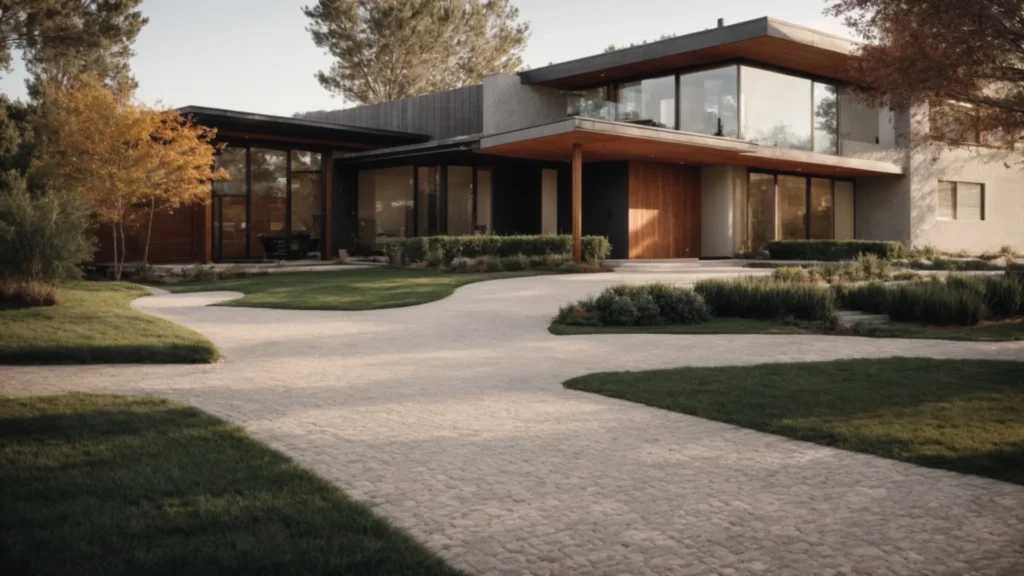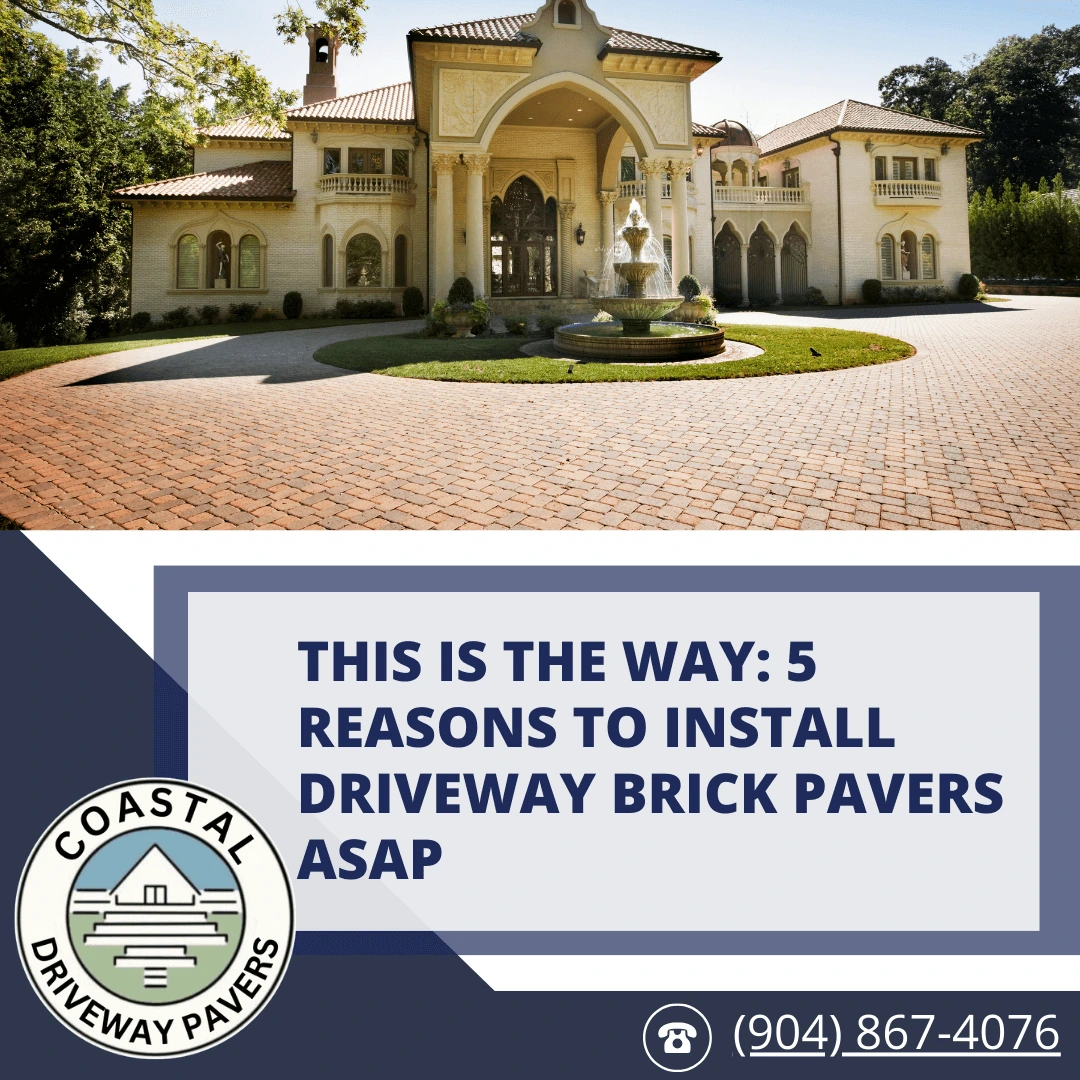Deciding between a paver driveway cost vs concrete is a critical first step in boosting your home’s curb appeal and functionality. These two popular materials come with their own advantages and challenges, influencing not just the look of your driveway but also its long-term upkeep and overall cost. This guide dives deep into the comparison between pavers and concrete, aiming to arm you with the knowledge necessary to choose a driveway material that best suits your financial plans, design taste, and maintenance readiness.
Factors Affecting Installation Costs
When considering an upgrade to your property’s entrance, it’s essential to grasp the financial aspects of your options, particularly when weighing the cost to install a paver driveway against that of concrete. Each choice presents unique benefits, yet it’s the expenses tied to materials, labor, and ongoing maintenance that play pivotal roles in shaping your decision. In this section, we’ll discuss factors that impact the initial investment and long-term costs, helping you determine how much does a paver driveway cost compared to its concrete counterpart and which option aligns with your budget and property goals.
Material Costs
In 2024, homeowners are finding that the cost of materials remains a pivotal factor in their decision-making process. Pavers, with their vast array of colors, textures, and patterns, continue to be a popular choice for those seeking to add a touch of elegance and character to their driveways. The cost for pavers typically ranges from $10 to $50 per square foot, reflecting their superior aesthetic appeal and durability.
Conversely, concrete offers a more budget-friendly alternative at approximately $5 to $15 per square foot. While initially more cost-effective, opting for customization to complement your home’s exterior aesthetics can quickly elevate the price, narrowing the cost disparity between concrete and pavers.
Labor Costs
The labor costs associated with installing a driveway vary significantly between pavers and concrete. The intricate process of laying pavers by hand is labor-intensive, thus increasing the installation cost. This meticulous effort, however, results in a uniquely personalized and visually appealing driveway.
On the flip side, concrete driveways offer a simpler installation process, leading to lower labor costs. The efficiency of pouring and shaping concrete, even when adding bespoke finishes, makes it a more economically viable option for many homeowners.
Maintenance Costs
When considering the maintenance costs of driveways in 2024, it’s evident that pavers offer a cost-effective long-term solution, with individual replacements ranging from $5 to $15 per paver, and paver sealing costs between $0.50 to $2 per square foot every 3 to 5 years.
In contrast, concrete driveways, though cheaper to maintain initially, can incur higher costs over time due to cracking and wear, with crack repairs costing between $300 to $500 and sealing necessary every 2 to 3 years at $0.50 to $1.50 per square foot. This financial insight into the upkeep of paver versus concrete driveways underscores the importance of considering both immediate and future maintenance expenses when making your driveway material selection.
Installation Process
Creating a new driveway, whether adorned with pavers or cast in concrete, involves a sequence of carefully executed steps. Each stage in the process plays a pivotal role in ensuring the final structure not only looks appealing but is also built to last. Here’s a closer look at the journey from initial groundwork to the finishing touches, tailored for homeowners contemplating this significant enhancement to their property.
Setting the Stage: Preparing for Installation
The journey to a new driveway starts with thorough preparation, laying the groundwork for a successful project.
- Site Excavation: This initial step involves removing any existing surface and leveling the ground beneath. Both paver and concrete driveways require a stable foundation to avoid future issues like cracking or uneven settling.
- Base Preparation: A critical yet often overlooked step, preparing the base involves laying down and compacting layers of material to ensure proper drainage and stability. This foundation is essential for preventing water accumulation and providing a stable platform for the driveway material.
Bringing the Vision to Life: The Installation Phase
With a solid foundation in place, the driveway begins to take shape during the installation phase.
- Paver Installation Steps: Creating a driveway with pavers is a detailed process. It starts with laying a bed of sand, followed by placing the pavers one by one, cutting them to fit as needed, and compacting them to ensure they’re set firmly in place. This step-by-step approach guarantees a custom, visually appealing result that’s built to last.
- Concrete Pouring Steps: Concrete driveways, while seeming more straightforward, require precision. Setting forms to define the shape, pouring the concrete, and then leveling it out ensures a smooth, uniform surface. Adding textures or patterns, while optional, can elevate the visual appeal of the concrete, making it more than just a functional surface.
Ensuring Longevity: Curing and Sealing
Final touches are crucial for the longevity and durability of your driveway.
- Pavers: Sealing the pavers after installation is an important step to protect them from weather elements, staining, and fading. This not only extends the life of your driveway but also maintains its vibrant appearance.
- Concrete: For concrete driveways, the curing process is key. Keeping the concrete moist and protected for several days allows it to achieve maximum hardness and durability. Sealing, similar to pavers, provides additional protection against stains and weather damage.
Appearance: Crafting Curb Appeal
When planning a new driveway, the look and feel of the finished product are just as important as its functionality. Homeowners today have more options than ever, particularly when it comes to the materials used for their driveways. Pavers and concrete stand out as popular choices, each offering unique benefits in terms of appearance.
Pavers: A Canvas for Creativity
Pavers are known for their incredible variety and the freedom they offer in design. Available in a spectrum of colors, shapes, and patterns, they empower homeowners to craft a driveway that’s not just a path to their garage but a statement piece for their property. The ability to mix and match pavers means you can create intricate designs or simple, elegant layouts that reflect your home’s style. Beyond aesthetics, pavers also allow for personalization that can blend seamlessly with your landscape, enhancing the overall appeal of your outdoor space.
Concrete: Sleek and Customizable
Concrete might seem like a more straightforward option, but its customization potential is often underestimated. Modern concrete driveways are not limited to the traditional grey slab; they can be dyed or stained to complement your home’s exterior palette. Moreover, through stamping and finishing techniques, concrete can mimic the look of natural stone, brick, or even wood, providing a durable and cost-effective alternative to more expensive materials. These texture options add depth and character to what could otherwise be a flat, monotonous surface.
Environmental Impact: Paving the Way for Sustainability
In today’s environmentally conscious world, the impact of construction choices extends beyond the immediate surroundings to the broader ecosystem. The materials used for driveways, specifically pavers and concrete, have distinct environmental footprints. Understanding these can help homeowners make choices that align with their sustainability goals.
Permeability: Managing Water Responsibly
One of the key environmental considerations for driveway materials is their permeability — their ability to allow water to pass through.
- Pavers are particularly praised for their permeability. Designed to let water percolate through the spaces between them, pavers significantly reduce water runoff, a leading cause of urban flooding and pollution in waterways. This feature makes pavers an eco-friendly option, helping to recharge groundwater and minimize the strain on sewer systems during heavy rains.
- Concrete, traditionally seen as less permeable, has evolved with options that are more environmentally friendly. Permeable concrete allows water to seep through the material itself or through gaps intentionally left between slabs. This innovation offers a solid surface with reduced runoff, combining functionality with environmental stewardship.
Eco-Friendly Materials: Towards a Sustainable Future
Another vital aspect of environmental impact is the sustainability of the materials used.
- Pavers have a significant advantage in that many are made from recycled materials. The ability to reuse content such as crushed stone, glass, and even old pavers themselves not only reduces waste but also lessens the demand for virgin materials. This circular approach to materials contributes positively to the environment.
- Concrete, while durable and versatile, is known for its energy-intensive production process. However, the industry is making strides in sustainability by incorporating recycled materials into concrete mixes and improving the efficiency of production methods. These advancements are gradually reducing the carbon footprint of concrete, making it a more environmentally friendly option than in the past.
Cost Comparison
In 2024, homeowners ready to upgrade or install a new driveway are navigating through a sea of options, each with distinct financial considerations. Understanding the initial investment and long-term costs associated with paver and concrete driveways is crucial for making an informed decision that suits your budget and lifestyle. This analysis aims to shed light on the initial setup costs, maintenance expenses over the years, and the potential value addition each option brings to the market today.
Initial Installation Costs
Choosing pavers for your driveway introduces a blend of aesthetic appeal and financial commitment. The pavers driveway cost, for a project, spans from $10 to $50 per square foot, influenced by the choice of materials and the design’s complexity. This cost spectrum accounts for the meticulous labor of placing each paver and the premium quality of materials used. For a driveway covering 500 square feet, homeowners might be looking at an expenditure ranging from $5,000 to $25,000. This investment not only elevates your home’s exterior but also opens up a realm of driveway pavers ideas for a customized look.
Conversely, opting for concrete offers a more economical route, with 2024 prices estimated between $6 to $12 per square foot for basic installations. This rate covers the essentials of laying a durable concrete surface, without delving into additional aesthetic options like staining or stamping—enhancements that, while attractive, elevate the cost to $15 or more per square foot. Thus, a standard 500-square-foot concrete driveway could range from $3,000 to $6,000, positioning it as a budget-friendly alternative for many. This choice also allows for the exploration of concrete paver driveway ideas, merging affordability with creative design.
Long-Term Maintenance Costs
While initially more budget-friendly, concrete driveways may incur higher maintenance costs in the long run. Addressing issues like cracking and discoloration necessitates regular repairs and sealing, potentially adding up to $500 to $1,000 in maintenance costs every few years.
In contrast, pavers offer a robust and low-maintenance solution. Damaged or stained pavers can be individually replaced, usually costing between $5 to $15 each. This feature significantly reduces the hassle and cost of maintenance, keeping annual expenses well under $300, except in cases of extensive damage.
Return on Investment
- Pavers are often lauded for their ability to increase property value. The aesthetic appeal and durability of a well-installed paver driveway can make a significant impact on curb appeal, potentially offering a good return on investment, especially in upscale neighborhoods where exterior aesthetics play a crucial role in property valuation.
- Concrete, despite its lower initial cost, can also contribute positively to a home’s value, particularly when customization options are employed to enhance its appearance. However, the return on investment may not be as high as with pavers, unless the design and finish of the concrete driveway are exceptional.
Key Factors in Driveway Selection
Selecting the right material for your driveway is more than just a matter of cost—it’s a decision that affects the look, feel, and sustainability of your property. Various elements should be considered to ensure that your choice aligns with both your practical needs and aesthetic desires. Here’s a detailed exploration of the crucial factors influencing driveway material selection, designed to navigate homeowners toward an informed decision.
Budget: Balancing Cost and Quality
Budget often tops the list of considerations, acting as a significant determinant in the choice between pavers and concrete. While pavers present a higher initial investment, their durability and ease of repair may offer greater long-term savings. Conversely, concrete provides a cost-effective solution upfront but may entail higher maintenance costs over time. Assessing your financial flexibility against these long-term considerations is essential in making a cost-effective decision.
Aesthetics: Reflecting Your Home’s Style
The appearance of your driveway contributes significantly to your home’s curb appeal. Pavers offer a wide range of styles, colors, and patterns, allowing for a high degree of customization that can complement your home’s architecture and landscaping beautifully. On the other hand, concrete, with options for stamping and coloring, can also be tailored to enhance your property’s look, albeit with a more uniform finish.
Climate: Adapting to Your Environment
Your local climate plays a pivotal role in determining the most suitable driveway material. Areas prone to extreme weather conditions require materials that can withstand such challenges. Pavers, with their interlocking design, are well-suited to freeze-thaw cycles, offering resilience against cracking. Concrete, while durable, may be more susceptible to weather-related damage but can be treated for better performance in harsh climates.
Durability and Maintenance: Planning for the Long Haul
Durability and the associated maintenance effort are closely linked. Pavers are renowned for their long life and simple repair process, often making them a more durable option in the long run. Concrete’s longevity depends heavily on maintenance practices like sealing and timely repairs to cracks. Weighing the durability of materials against the required upkeep can guide you towards a more sustainable choice.
Environmental Concerns: Making a Sustainable Choice
For eco-conscious homeowners, the environmental impact of driveway materials is a significant factor. Permeable pavers enhance drainage and reduce runoff, supporting a more sustainable landscape. Concrete options have evolved, with eco-friendly choices available, though the production process remains energy-intensive. Considering sustainable options that minimize environmental impact while meeting other criteria can lead to a more responsible choice.
Comparative Guide: Paver vs. Concrete Driveways – Costs, Installation, and More
| Category | Pavers | Concrete |
| Initial Installation Cost | $10 to $50 per sq. ft Higher due to material quality and labor-intensive installation. | $5 to $15 per sq. ft.Lower initial cost, customizable options may increase price. |
| Labor Costs | Higher, due to the labor-intensive process of laying by hand. | Lower, due to a simpler installation process. |
| Maintenance Costs | Lower long-term, with individual replacements ($5-$15 per paver) and sealing ($0.50-$2 per sq. ft.). | Potentially higher over time due to cracks; sealing required every 2-3 years ($0.50-$1.50 per sq. ft.). |
| Installation Process | Involves site excavation, base preparation, laying sand, placing and compacting pavers. | Similar initial steps, followed by pouring concrete, setting, and optional texturing. |
| Durability and Maintenance | Individually replaceable, easier and cheaper long-term maintenance. | May incur higher maintenance costs for cracks and wear. |
| Appearance | Wide variety of colors, textures, and patterns; highly customizable. | More uniform, but customizable with dyes, stains, and textures. |
| Environmental Impact | Permeable options reduce runoff; many made from recycled materials. | Permeable concrete available; energy-intensive production but improving with recycled materials. |
| Long-Term Costs | Lower maintenance costs; damaged pavers can be replaced individually. | Higher maintenance costs due to potential cracking and the need for frequent sealing. |
| ROI | Can increase property value due to aesthetic appeal and durability. | Positive impact on home’s value, especially with high-quality finishes. |
| Key Factors for Selection | Budget, aesthetics, climate resilience, durability, maintenance, and environmental impact. | Same as pavers, with a consideration for upfront costs vs. long-term maintenance. |
Conclusion
Selecting the ideal material for your driveway is a crucial decision that significantly impacts your home’s appearance, functionality, and overall value. Whether you lean towards the resilience and aesthetic versatility of pavers or the economic and straightforward appeal of concrete, it’s important that your choice closely aligns with your specific needs and style preferences. Both options present their own set of benefits, from the design flexibility and durability of pavers to the cost-effectiveness and sleek uniformity of concrete, making the decision a matter of personal preference and practicality.
For those looking for professional guidance in making this important decision, Concrete Driveway Pavers offers expert advice and top-notch installation services. With a reputation for excellence in creating durable and beautiful driveways, they can help you navigate the myriad of options to find the perfect solution for your home. By partnering with a trusted expert like Concrete Driveway Pavers, you can ensure that your driveway enhances your property’s curb appeal and functionality for years to come.
Frequently Asked Questions
The main differences between a concrete and paved driveway lie in aesthetics, cost, durability, and maintenance. Concrete driveways offer a more uniform appearance and tend to be less expensive initially but may crack over time and require periodic sealing. Paved driveways, typically made from interlocking pavers, provide more design flexibility and can be more easily repaired by replacing individual pavers. While pavers might have a higher upfront cost, they often offer greater durability and a unique aesthetic appeal.
For those asking the question about ‘’paver driveway installers near me’, the best approach is to start with an online search to identify local contractors like Coastal Driveway Pavers with positive reviews and high ratings. Additionally, making a trip to nearby home improvement stores or consulting with friends and family can yield valuable recommendations for skilled professionals. It’s crucial for individuals to ensure that any installer considered has direct experience with paver driveways. Requesting to see references or portfolios of the installer’s past work is an effective method to verify their expertise and reliability, paving the way for a successful driveway project.
Generally, installing a concrete driveway is cheaper than opting for pavers due to the lower material and labor costs. Concrete driveways can range from $6 to $12 per square foot, whereas paver driveways can cost between $10 to $50 per square foot, depending on the type of pavers and the complexity of the design. However, considering long-term maintenance and potential value addition to your property, pavers might offer a better return on investment.
Paver driveways typically require less frequent but more specific maintenance than concrete driveways. Sealing is recommended every few years to maintain their appearance and prevent weed growth between the pavers. In contrast, concrete driveways might need sealing more frequently to prevent cracks and erosion but are generally more straightforward to maintain. Both types benefit from regular cleaning to keep them looking their best.

Written By:









